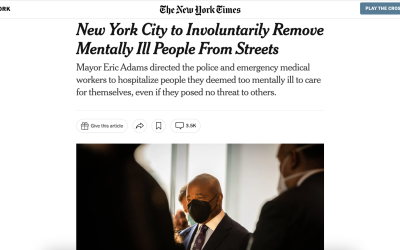Big Tech is in big trouble.
Two contradicting lower court rulings have paved the way for a likely showdown in the Supreme Court, deciding whether social media companies have the right to moderate posts and comments on their platforms.
Big Tech, or social media companies, have been under fire for moderating content on their platforms as part of their privacy policies and user guidelines, but have been under scrutiny in recent years for moderating political content as well.
The Republican Party has been targeting social media companies for “censorship” and “discrimination” for taking down hateful content and misinformation. While content moderation is not a strictly partisan issue, certain parties are more prone to violating the guidelines set by the social media companies than others.
We need content moderation. In a world where there is constant information being thrown at us with few reliable sources of verified information, misinformation and potentially hurtful information spread like wildfire, reaching thousands of users and causing damage, even if the content is taken down. Not allowing content moderation would contribute to the continued spread of harmful content and misinformation.
Content moderation isn’t a deliberate silencing of speech, but rather a needed guideline as platforms grow in scale and scope. Traditional media doesn’t have the pull and weight that social media currently has on society. Social media is becoming just as important as traditional media by bringing current events and information into the public’s eye. As an ever-growing source of information in the world, social media content moderation is needed to guide audiences towards correct and verified foundations of information.
The recent court rulings bring this issue back into the spotlight, but the issue itself isn’t new. While a court in Florida recently ruled that a law “violated constitutional protections for tech companies that do not want to host views on their platforms that they find hateful, divisive, or false”, the Texas law was upheld that bars companies from removing posts based on political ideology. These contradicting lower court rulings have led to a petition of the Supreme Court to determine whether the First Amendment prohibits states from forcing platforms to host viewpoints and content that do not want to host.
Those who say that social media is “silencing” them, forget that social media companies are private businesses who are exercising their right to moderate content without government interference. If users are upset and worried that their information is being targeted and removed, there are other platforms that accept or host more diverse opinions and content.
Users also agree to a specific platform’s terms and services when they sign up for the platform, which includes their guidelines for allowed content. By posting harmful content of misinformation, you are directly violating terms you agreed to when signing up for that platform.
The lines between traditional media and new media are being blurred. They can no longer be treated as two separate enterprises. Rather, Big Tech should be allowed to moderate the content on their platforms as newspapers and other traditional media are able to do.




Excellent topic with current news hook. How about some specific examples to outrage us? What are some examples of posts that were taken down?